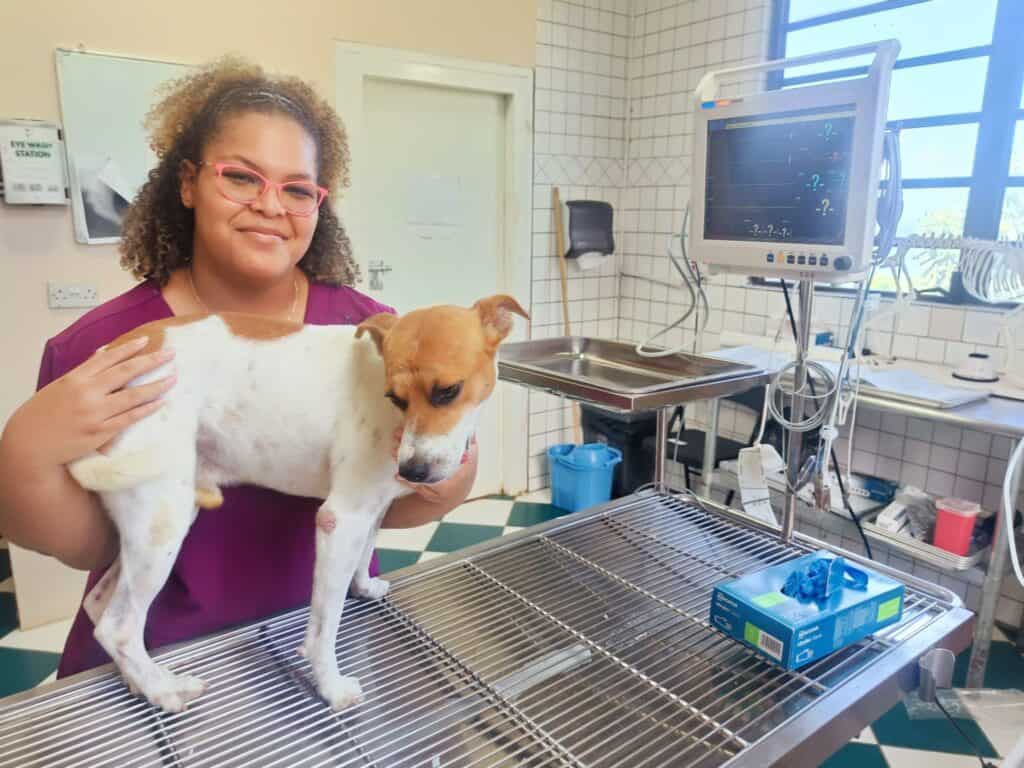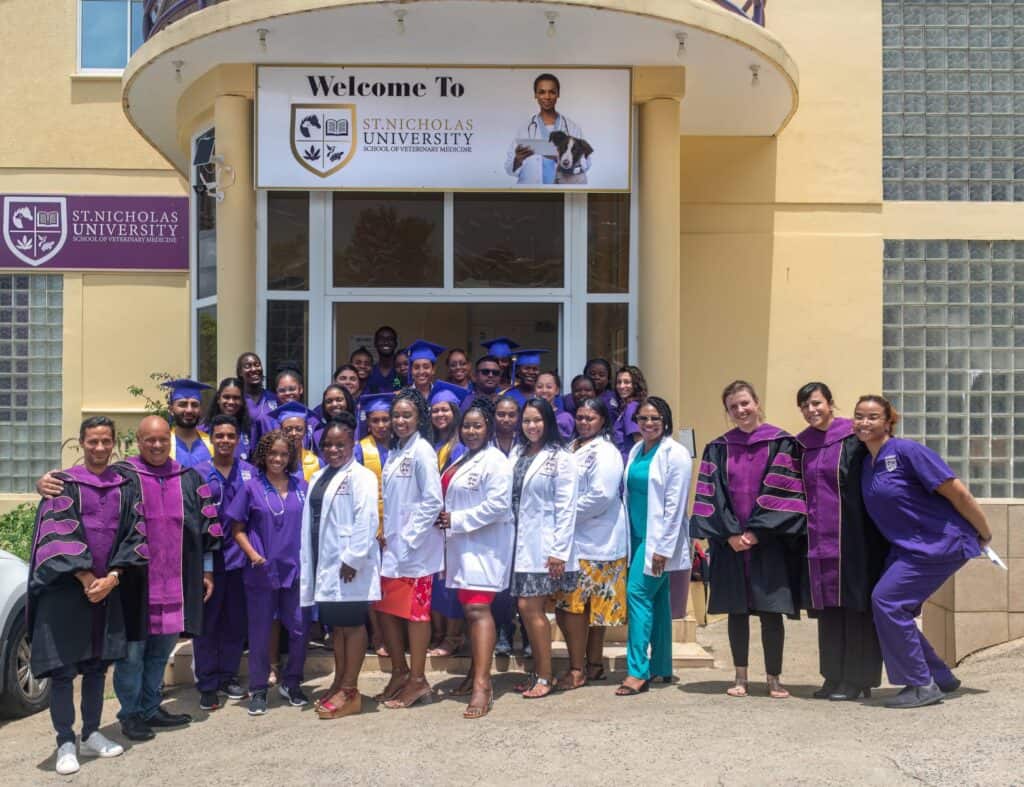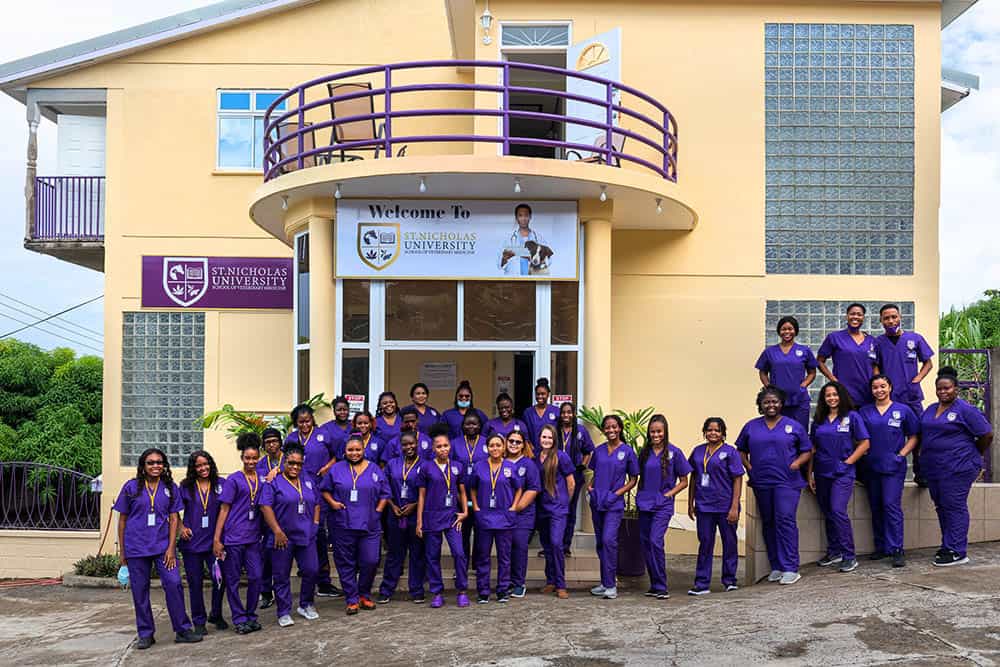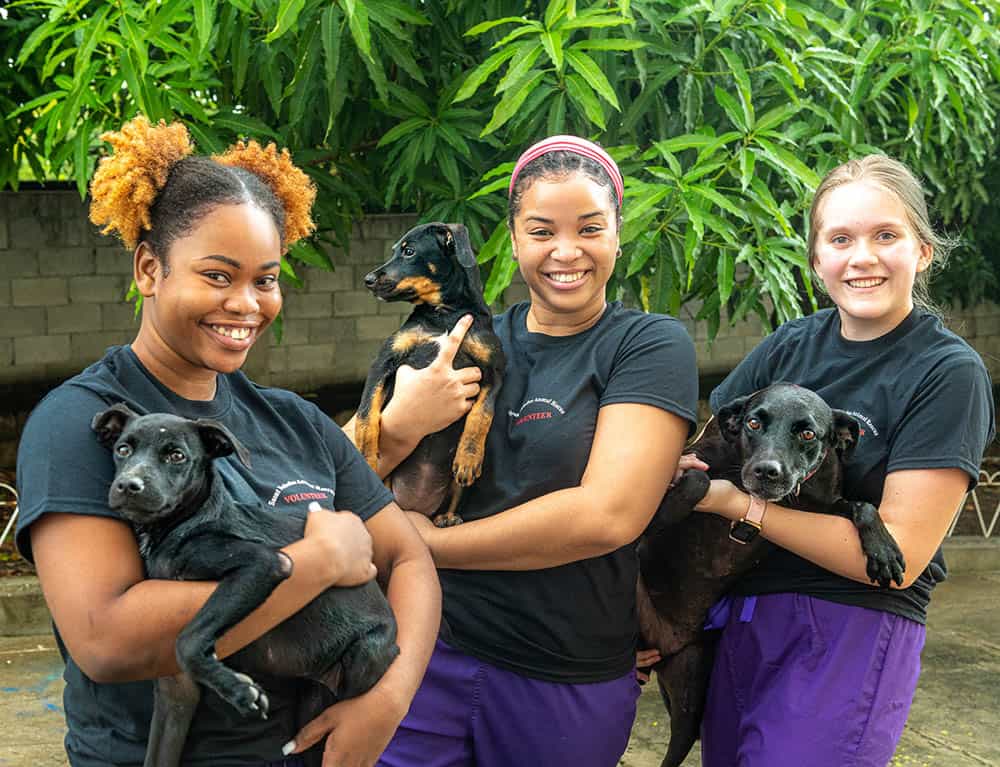The field of veterinary medicine faces a significant challenge regarding diversity, with Black individuals being particularly under-represented. According to a 2022 report by the Journal of the American Veterinary Medical Association: [https://www.ncbi.nlm.nih.gov/pmc/articles/PMC9275362/], Black individuals make up only 5%of veterinarians in the United States, despite comprising roughly 13.4% of the population. This lack of representation can have detrimental effects, limiting access to culturally competent veterinary care for diverse communities, and hindering the profession’s ability to fully serve the needs of all animal companions. This is also true for other minority / under-represented communities.
Recognizing this issue, St. Nicholas University: School of Veterinary Medicine in Dominica (the Caribbean), is actively working to increase diversity within its veterinary medicine program. The university implements various initiatives aimed at fostering an inclusive environment for all students, with a particular focus on attracting and supporting Black students pursuing veterinary careers.

One key initiative is the St. Nicholas University Veterinary Medicine Scholarship Program.
This program provides financial assistance specifically to Black and minority students demonstrating
academic potential and a commitment to serving under-served communities. This includes Caribbean students from Caricom, often from lower-income communities.
Additionally, the university’s Mentorship Program pairs incoming Black students with experienced Black faculty
members who offer guidance and support throughout their academic journey. All above finds
appreciation with Black and minority students. A Black / Aboriginal student from USA, Will B.
comments: “After graduating from SNU I plan on returning to the U.S and starting an outreach
program in an effort to show under-represented groups in my community that becoming a
veterinarian is possible with universities like SNU, no matter how unlikely it may seem in their
world.”
St. Nicholas also recognizes the importance of a diverse faculty in enriching the educational
experience and serving as role models for students. The university actively seeks to recruit and
retain Black faculty members, fostering a learning environment that reflects the diverse
communities served by veterinarians. However, achieving faculty diversity requires navigating
the broader issue of under-representation in the profession itself. St. Nicholas acknowledges this
challenge and is committed to supporting initiatives like the National Association of Black
Veterinarians (NABV), which works to increase the number of Black veterinary professionals
through scholarships and mentorship programs.

“We are trying to increase number of veterinarians willing to work in under-served Black and Aboriginal communities”, says Dr. Naderkhani, St. Nicholas University president. “We also focus on additional qualities of our future veterinarians, such as compassion for animals. That in turn may assist in a better quality veterinary care in various low-income communities.”Despite ongoing efforts, St. Nicholas acknowledges the challenges that still exist within the veterinary profession regarding diversity and inclusion. Systemic barriers, such as access to educational resources and financial constraints, can disproportionately impact students from minority backgrounds. The university recognizes the need to address these issues collaboratively and works with external organizations to dismantle these barriers.
St. Nicholas University believes that a diverse and inclusive veterinary profession is essential to providing exceptional care for all animals and their companions. Through its commitment to attracting and supporting Black and Aboriginal students, fostering a diverse faculty, and partnering with relevant organizations, the university strives to be a leader in promoting positive change within the field.



